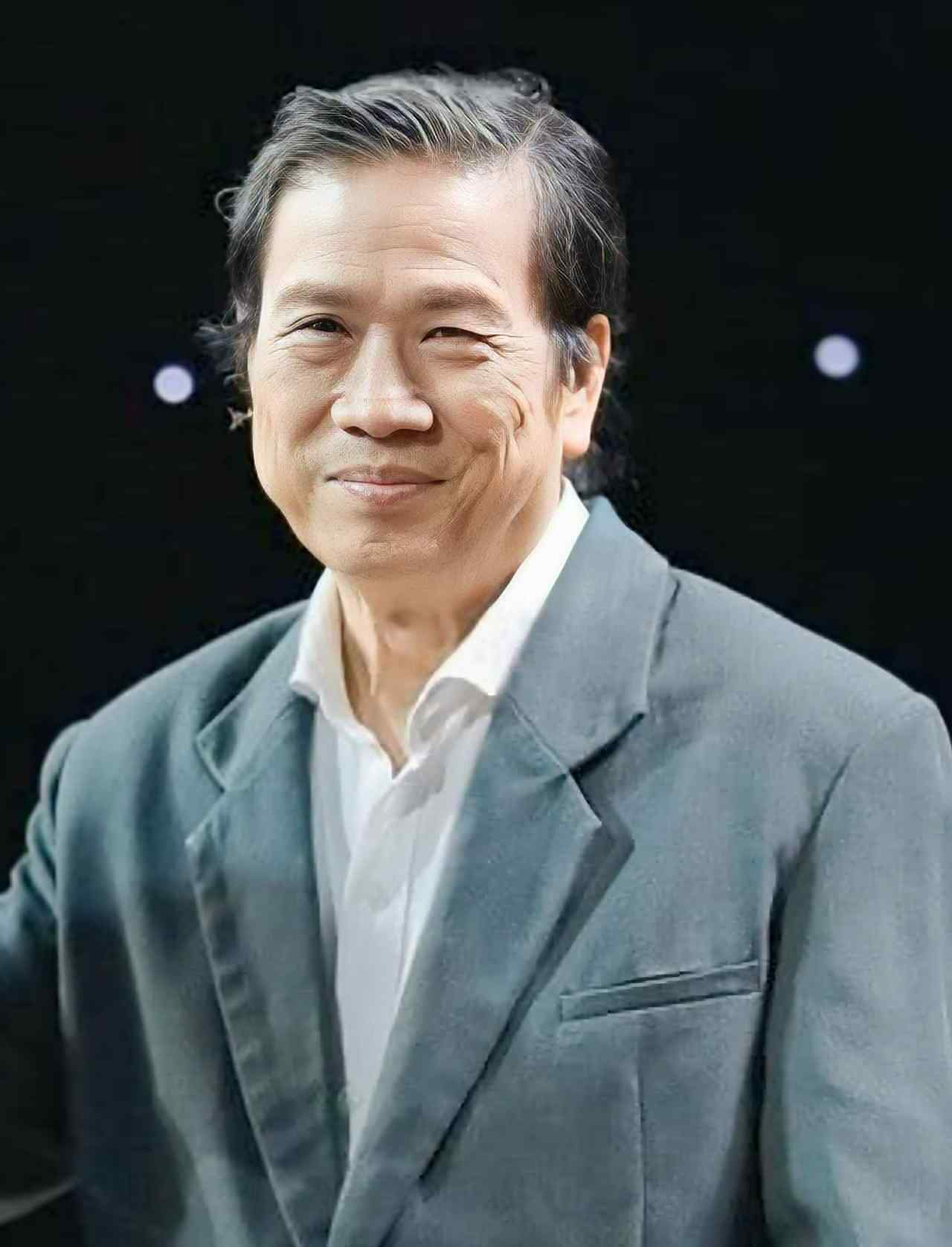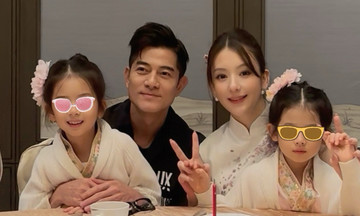The composer passed away on the afternoon of 24/9, at the age of 80. In accordance with his wishes, a simple funeral was held at his modest home in Ong Ta area, Tan Binh district, Ho Chi Minh City. There were no wreaths or resounding music, only the scent of incense, candlelight, and prayers, reflecting his private nature.
In his later years, Nguyen Vu remained in good health with a sharp memory, occasionally reminiscing with old friends. He had 4 children, none of whom pursued a career in the arts.
Nguyen Vu dedicated almost his entire life to music. Born in Hanoi in 1945, he moved to Da Lat with his family at the age of 9. His uncle taught him the violin, and his father’s friend was also a composer, immersing him in music from a young age. He sang for the Da Lat Radio Children's Choir and, at 12, won the station's solo singing competition, receiving a mandolin as a prize.
At 20, he began composing songs like "Mot loai chim bien" (A Seabird), "Huyen thoai mot chieu mua" (Legend of a Rainy Afternoon), and many others. However, "Bai thanh ca buon" remains his most impactful piece. Each Christmas season, the melancholic melody resonates amidst the festive cheer, touching the hearts of generations.
 |
Composer Nguyen Vu on the program "Nguoi ke chuyen tinh" (The Storyteller) in 2021. Photo: THVL |
He wrote the song in October 1972, at 27, commissioned by a producer. The melody was inspired by a childhood memory from when he was 14, living near Con Ga Church in Da Lat. He attended mass daily, captivated by a beautiful young woman who passed by his house on her way to church. He recalled, "My young heart would race at the sight of her, hair flowing in the highland breeze."
For 3 months, he followed her, too shy to speak. One rainy afternoon near Christmas, as they sheltered near the church, the melody of "Silent Night" drifted from within. The girl softly hummed along, leaving him speechless. Days later, his family moved to Saigon, and he lost contact with her. The memory of that afternoon resurfaced whenever he heard "Silent Night".
The song's melancholic melody reflects his unrequited first love. The lyrics evoke longing and regret for the irretrievable beauty of the past.
However, the composer was troubled by lyrical misinterpretations. For instance, his line "Roi nhung dem the tran don Noel" (Then the earthly nights welcome Christmas) was often changed to "giao duong don Noel" (the church welcomes Christmas). He explained that Christmas had transcended its religious origins to become a universal celebration. "The tran" is the inversion of "tran the," meaning the secular world. Also, the line "Long lanh sao troi dep them moi mat" (Twinkling stars enhance the lips and eyes) was often sung as "dep them doi mat" (enhance the eyes).
Singer Thai Chau first performed the song on the Son Ca 3 album. Renowned singers like Khanh Ly, Elvis Phuong, Dam Vinh Hung, and younger artists like Quoc Thien and Anh Tu have also performed it, extending its legacy.
Nguyen Vu returned to Da Lat several times, seeking information about the girl, but she remained elusive. The opening line, "Bai thanh ca do con nho khong em?" (Do you still remember that carol?), remains unanswered. Yet, for generations of music lovers, the melody is etched in their hearts, a cherished part of every Christmas.
Following the song's success, he continued composing and working in music. After 1975, he worked in the arts and culture department of Central Pharmaceutical Enterprise 22. From around 1990, he taught music at his home in Tan Binh district, Ho Chi Minh City, and wrote music for various centers.
He composed many romantic songs, including a series with the word "cuoi" (last) in the title, such as "Loi cuoi cho em" (Last Words for You), "Nhin nhau lan cuoi" (Last Glance at Each Other), and "Bai cuoi cho nguoi tinh" (Last Song for a Lover). His love for the sea inspired songs like "Bien tim" (Purple Sea), "Mot dem hai hanh" (A Night at Sea), "Mot loai chim bien" (A Seabird), and "Sao roi tren bien" (Stars Falling on the Sea). His music is generally characterized by themes of love, with melancholic melodies and lyrics.
With over 50 popular songs, he admitted that none achieved the fame of "Bai thanh ca buon." He once said, "To this day, the song remains beloved. I never expected this. Everyone experiences a time of dreamy love, and sad memories are often the most deeply etched, easily softening hearts when recalled. Perhaps 'Bai thanh ca buon' has achieved that."
Ha Thu












